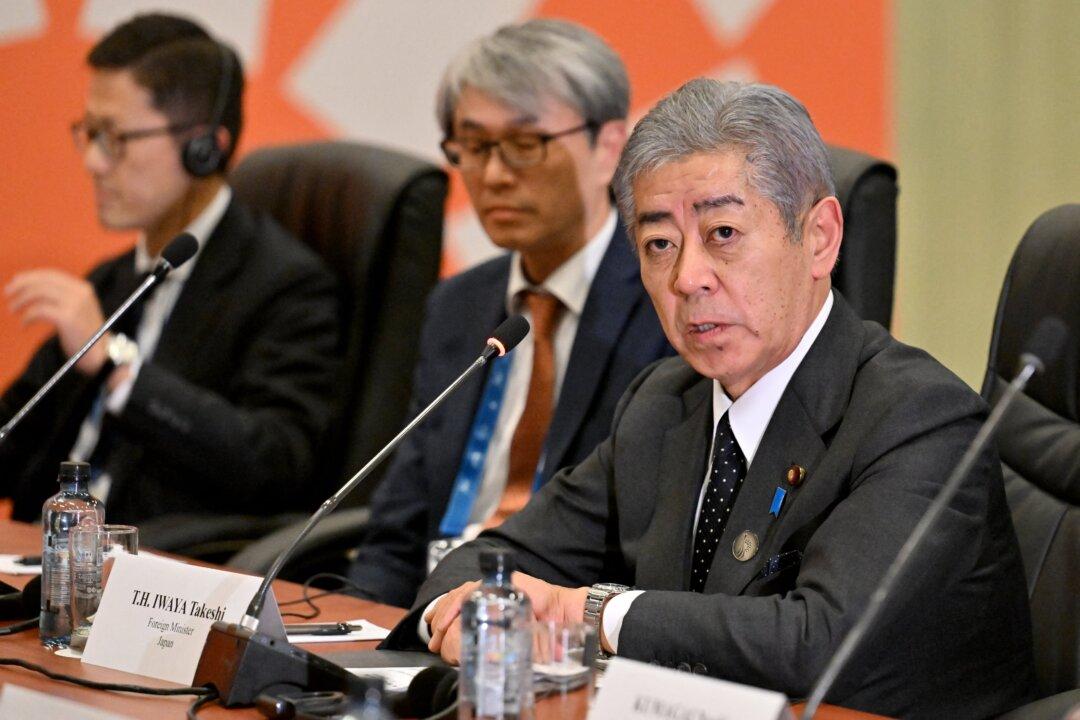Japanese Foreign Minister Takeshi Iwaya on Dec. 25 raised Tokyo’s significant concerns, including the Chinese military’s increased activities in disputed waters, during his first visit to Beijing since taking office in October.
After a nearly three-hour meeting with his Chinese counterpart, Iwaya told reporters he used the opportunity to relay Japan’s worries over several issues, including the “situation in the East China Sea” and the Chinese regime’s “unilateral exploitation of resources.”




